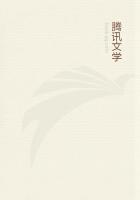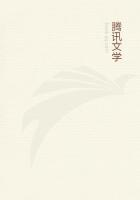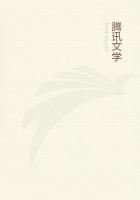(** Viz. : Six hundred bacons, eighty carcasses of beef, and six hundred muttons.)One cause of this distemper might be, no doubt, the quantity of wretched fresh and salt fish consumed by the commonalty at all seasons as well as in Lent; which our poor now would hardly be persuaded to touch.
The use of linen changes, shirts or shifts, in the room of sordid and filthy woollen, long worn next the skin, is a matter of neatness comparatively modern; but must prove a great means of preventing cutaneous ails. At this very time woollen instead of linen prevails among the poorer Welch, who are subject to foul eruptions.
The plenty of good wheaten bread that now is found among all ranks of people in the south, instead of that miserable sort which used in old days to be made of barley or beans, may contribute not a little to the sweetening their blood and correcting their juices; for the inhabitants of mountainous districts, to this day, are still liable to the itch and other cutaneous disorders, from a wretchedness and poverty of diet.
As to the produce of a garden, every middle-aged person of observation may perceive, within his own memory, both in town and country, how vastly the consumption of vegetables is increased. Green-stalls in cities now support multitudes in a comfortable state, while gardeners get fortunes. Every decent labourer also has his garden, which is half his support, as well as his delight; and common farmers provide plenty of beans, peas, and greens, for their hinds to eat with their bacon; and those few that do not are despised for their sordid parsimony, and looked upon as regardless of the welfare of their dependents. Potatoes have prevailed in this little district, by means of premiums, within these twenty years only; and are much esteemed here now by the poor, who would scarce have ventured to taste them in the last reign.
Our Saxon ancestors certainly had some sort of cabbage, because they call the month of February sprout-cale; but, long after their days, the cultivation of gardens was little attended to. The religious, being men of leisure, and keeping up a constant correspondence with Italy, were the first people among us that had gardens and fruit-trees in any perfection, within the walls of their abbies* and priories. The barons neglected every pursuit that did not lead to war or tend to the pleasure of the chase.
(* 'In monasteries the lamp of knowledge continued to burn, however dimly. In them men of business were formed for the state:
the art of writing was cultivated by the monks; they were the only proficients in mechanics, gardening, and architecture.' -- See Dalrymple's Annals of Scotland.)It was not till gentlemen took up the study of horticulture themselves that the knowledge of gardening made such hasty advances. Lord Cobham, Lord Ila, and Mr. Waller of Beaconsfield, were some of the first people of rank that promoted the elegant science of ornamenting without despising the superintendence of the kitchen quarters and fruit walls.
A remark made by the excellent Mr. Ray in his Tour of Europe at once surprises us, and corroborates what has been advanced above;for we find him observing, so late as his days, that 'the Italians use several herbs for sallets, which are not yet or have not been but lately used in England, viz., selleri (celery), which is nothing else but the sweet smallage; the young shoots whereof, with a little of the head of the root cut off, they eat raw with oil and pepper.' And further he adds 'curled endive blanched is much used beyond seas;and, for a raw sallet, seemed to excel lettuce itself.' Now this journey was undertaken no longer ago than in the year 1663.
I am, etc.
Letter XXXVIII
To The Honourable Daines BarringtonForte puer, comitum seductus ab agmine fido, Dixerat, ecquis adest ? et, adest, responderat echo.
Hic stupet; utque aciem partes divisit in omnes;Voce, veni, clamat magna. Vocat illa vocantem.
Selborne, Feb. 12, 1778.
Dear Sir,In a district so diversified as this, so full of hollow vales, and hanging woods, it is no wonder that echoes should abound. Many we have discovered that return the cry of a pack of dogs, the notes of a hunting-horn, a tunable ring of bells, or the melody of birds, very agreeably: but we were still at a loss for a polysyllabical, articulate echo, till a young gentleman, who had parted from his company in a summer evening walk, and was calling after them, stumbled upon a very curious one in a spot where it might least be expected. At first he was much surprised, and could not be persuaded but that he was mocked by some boy; but, repeating his trials in several languages, and finding his respondent to be a very adroit polyglot, he then discerned the deception.
This echo in an evening, before rural noises cease, would repeat ten syllables most articulately and distinctly, especially if quick dactyls were chosen. The last syllables ofTityre, tu patulae recubans ...
were as audibly and intelligibly returned as the first: and there is no doubt, could trial have been made, but that at midnight, when the air is very elastic, and a dead stillness prevails, one or two syllables more might have been obtained; but the distance rendered so late an experiment very inconvenient.
Quick dactyls, we observed, succeeded best; for when we came to try its powers in slow, heavy, embarrassed spondees of the same number of syllables,Monstrum horrendum, informe, ingens ...
we could perceive a return but of four or five.
All echoes have some one place to which they are returned stronger and more distinct than to any other; and that is always the place that lies at right angles with the object of repercussion, and is not too near, nor too far off. Buildings, or naked rocks, re-echo much more articulately than hanging wood or vales; because in the latter the voice is as it were entangled, and embarrassed in the covert, and weakened in the rebound.















